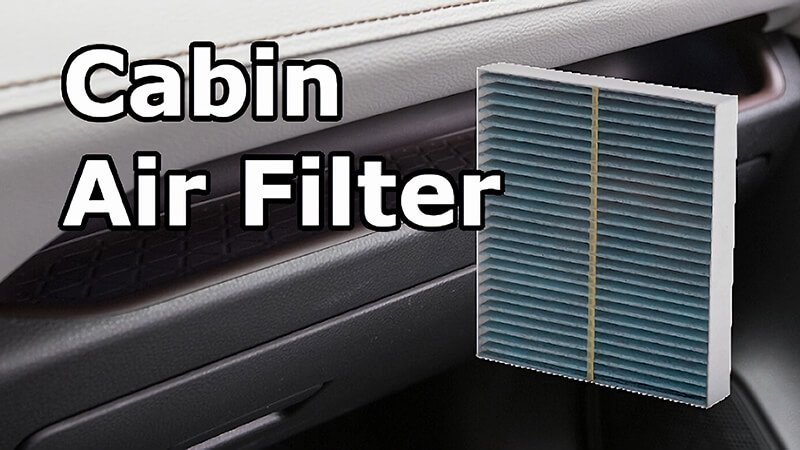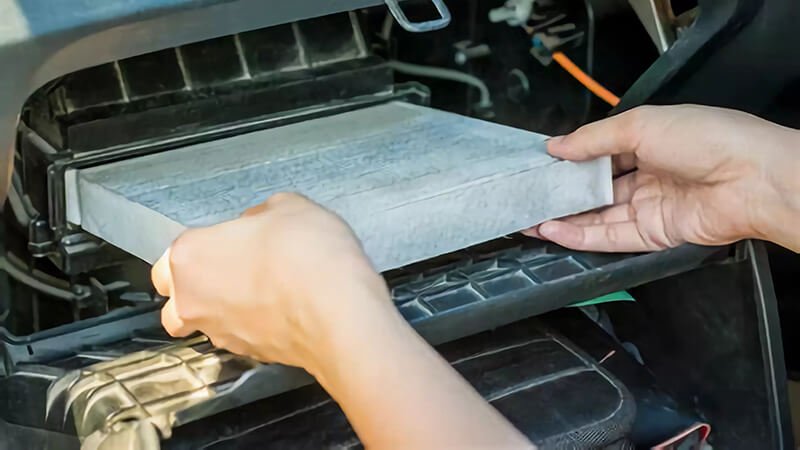When it comes to car maintenance, some features seem essential, while others feel like an upsell. Cabin air filters fall into the former category. But are they truly necessary, or just overpriced hype? Let’s dive in and figure out the real value behind this often-discussed auto part.
Cabin air filters are far from overpriced hype. They are a genuine necessity. These filters significantly improve air quality inside your vehicle, protect the air conditioning system, and ensure the comfort and health of the car’s occupants, particularly for those with allergies or respiratory conditions.
Now, let's take a closer look at why cabin air filters are a vital part of your car’s maintenance, and how they impact both the health of your vehicle and the well-being of those inside it.

Are Cabin Air Filters Really Necessary?
Cabin air filters might seem like an afterthought when you’re thinking about car maintenance, but they play a crucial role in improving the air you breathe. So, why are they so important, and why do experts recommend them?
Yes, cabin air filters are necessary. They clean the air that enters your car’s cabin, blocking pollutants like dust, pollen, and smog. This is especially important for people with allergies or respiratory problems. Without these filters, the air inside your car could be worse than the air outside.
Cabin air filters are not just a luxury – they are a vital part of vehicle health and passenger comfort. The primary purpose of a cabin air filter is to purify the air that enters the cabin through the air conditioning and heating system. It traps harmful particles like dust, pollen, smoke, and even exhaust fumes, ensuring that the air inside the vehicle remains breathable and fresh.
For drivers with allergies or asthma, cabin air filters1 are indispensable. By filtering out allergens and pollutants, they help reduce the likelihood of allergic reactions, respiratory issues, or discomfort during long drives. Furthermore, they can protect the vehicle’s HVAC system, which would otherwise have to work harder to circulate air through clogged or dirty filters, leading to potential system failures and costly repairs.
But it’s not just about air quality. The cabin air filter also prevents contaminants from reaching critical components of the air conditioning system. By ensuring that the air passing through these systems is clean, cabin air filters help maintain the overall efficiency and longevity of the HVAC system. This translates to fewer repairs and better cooling or heating performance.
In essence, cabin air filters are a small but essential part of the vehicle's ecosystem. Without them, not only does the air quality suffer, but the vehicle’s climate control system could be at risk.
| Function of Cabin Air Filters | Importance |
|---|---|
| Air Quality Improvement | Removes allergens, dust, pollen, and smog |
| Protection for HVAC Systems | Prevents clogging and damage to the system |
| Health Benefits | Improves air quality for passengers, especially for those with respiratory issues |
| Long-Term Cost Savings | Reduces wear and tear on HVAC components, lowering repair costs |

Is It Better to Use Cheap or Expensive Air Filters?
When it comes to cabin air filters, the debate between cheap versus expensive often comes up. So, what’s the right choice? Is it worth spending extra money, or can a cheap filter get the job done?
While cheap filters may seem like a good deal, they often lack the quality and filtration efficiency of more expensive options. A high-quality filter will provide better protection for both your health and your car's air system. It’s better to invest in a reliable filter, especially if you drive frequently or have specific health concerns.
The question of whether to choose a cheap or expensive cabin air filter boils down to the performance and longevity of the filter. Cheap filters, while affordable, tend to be made from lower-quality materials that may not effectively capture the smallest particles in the air. They may allow pollutants to pass through, leading to diminished air quality and even a faster clogging of the filter itself.
On the other hand, more expensive filters typically offer superior filtration, often utilizing multi-layered, activated carbon2 or HEPA (High-Efficiency Particulate Air) technology3. These filters are designed to capture even the finest dust, pollen, and pollutants, ensuring that the air entering your car is as clean as possible. Additionally, high-quality filters tend to last longer and require less frequent replacement, which can save money in the long run.
For people who suffer from allergies or have respiratory issues, the choice becomes even clearer. A higher-quality filter will offer better protection and relief from symptoms. Furthermore, a good filter will ensure that the car’s air conditioning system remains efficient and free from buildup, helping to maintain overall vehicle health.
Cost vs. Quality Breakdown
| Feature | Cheap Filter | Expensive Filter |
|---|---|---|
| Filtration Efficiency | Lower, may miss smaller particles | High, captures fine particles |
| Lifespan | Shorter, needs frequent replacement | Longer, more durable |
| Health Protection | Limited, might allow allergens and pollutants | Effective, protects against allergens, dust, and pollutants |
| HVAC Protection | Limited, could clog up the system | Better protection, prevents system issues |
| Price Range | $10 - $15 | $20 - $40 |
In the end, the decision depends on your specific needs. If you rarely use your vehicle or don't have health concerns, a budget filter might suffice. However, for those who drive regularly or want to prioritize clean air, investing in a more expensive, high-performance filter is well worth the cost.

How Much Should a Cabin Air Filter Cost?
Now that we’ve discussed quality, let’s look at pricing. How much should a cabin air filter really cost, and is there a sweet spot for finding good value without overspending?
The cost of a cabin air filter varies depending on the make and model of your car, as well as the quality of the filter itself. On average, expect to pay anywhere from $10 to $40. For a high-quality, long-lasting filter, you might pay a bit more, but the investment pays off in improved air quality and vehicle longevity.
Cabin air filter prices can range significantly depending on the brand, quality, and vehicle type. Basic filters tend to be on the lower end of the price spectrum, while premium filters4 made from specialized materials like activated carbon or HEPA tend to cost more. However, it’s important to note that a higher price often correlates with better filtration performance and durability.
The price of a cabin air filter5 is generally influenced by the manufacturer’s reputation, the materials used, and the specific requirements of the vehicle model. For example, luxury or imported vehicles might require specialized filters, which can increase the cost.
While you can often find budget filters at around $10 to $15, these may need to be replaced more frequently. Higher-quality filters, priced between $20 and $40, offer superior filtration and tend to last longer, making them a more cost-effective option in the long run. For people with specific health concerns or who drive in areas with high pollution, investing in a high-performance filter is especially important.
In addition to the filter itself, don’t forget to factor in the cost of labor if you're having the filter installed professionally. While many people opt for DIY installation6 to save money, professional installation may cost an additional $20 to $50, depending on your location and vehicle model.
| Filter Quality | Price Range | Average Lifespan | Recommended for |
|---|---|---|---|
| Budget Filter | $10 - $15 | 6 months | Casual drivers, low pollution areas |
| Premium Filter | $20 - $40 | 12 - 18 months | Frequent drivers, health-conscious individuals, high pollution areas |

Do Expensive Car Air Filters Really Work?
We’ve already touched on the value of premium filters, but the big question is: do expensive filters really make a noticeable difference? Let’s break down whether the higher price tag is justified.
Yes, expensive car air filters do offer tangible benefits. They provide superior filtration, better air quality, longer lifespan, and can even help preserve your car’s HVAC system. For those with allergies or respiratory concerns, the higher investment is worth it.
Expensive car air filters are designed with higher-quality materials and advanced filtration technologies7. These filters often incorporate multiple layers, activated carbon8, and other specialized materials that can capture smaller particles and pollutants. This means that the air inside your car is cleaner, which is crucial for maintaining good health, especially for those with allergies or asthma.
While the upfront cost of an expensive filter may be higher, these filters tend to last longer and require less frequent replacement. A high-quality filter can last up to a year or more, depending on your driving conditions, while cheaper filters might only last a few months before needing replacement. This means you’ll save money over time, as you won’t need to replace the filter as often.
Moreover, premium filters can help protect the car's air conditioning and ventilation systems from becoming clogged with debris. This extends the lifespan of the HVAC system, saving you from potentially costly repairs down the line.
Ultimately, the choice between a cheap and expensive filter depends on your needs. If you prioritize clean air, durability, and system protection, investing in a high-quality cabin air filter9 is definitely worthwhile.
| Benefits of Expensive Filters | Cheap Filter | Expensive Filter |
|---|---|---|
| Filtration Efficiency | Lower | High |
| Durability | Low | High |
| Health Benefits | Limited | High |
| HVAC Protection | Low | High |
| Total Cost Over Time | Low | High |

Conclusion
Cabin air filters10 are a necessity for both health and vehicle maintenance. Whether they are overpriced hype or a genuine necessity is clear: they serve an important function by improving air quality and protecting your car’s HVAC system. By investing in quality filters, you’re not just improving your comfort but ensuring the longevity of your vehicle.
-
Explore this link to understand how cabin air filters enhance vehicle health and passenger comfort, especially for those with allergies. ↩
-
Discover how activated carbon enhances air filtration and protects against harmful pollutants in your car's environment. ↩
-
Explore this link to understand how HEPA technology can significantly improve air quality and health, especially for allergy sufferers. ↩
-
Explore the advantages of premium filters to see how they can enhance your driving experience and health. ↩
-
Understanding the role of cabin air filters can help you make informed choices for your vehicle's air quality. ↩
-
Learn DIY installation tips to save money and ensure your cabin air filter is replaced correctly. ↩
-
Discover the latest advancements in filtration technologies that can significantly improve the air quality in your car. ↩
-
Learn about the role of activated carbon in air filters and how it enhances air quality in your vehicle. ↩
-
Explore this link to understand how a high-quality cabin air filter can improve your car's air quality and your health. ↩
-
Learn about Runex Auto OEM cabin air filter for your market, getting the best price for your businness. ↩













